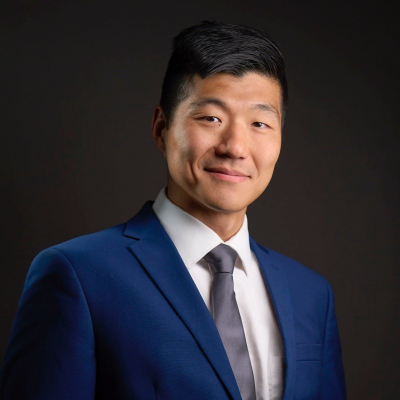A graduate business degree can be a gateway to some of the world’s most influential careers—but the application process is intensely competitive, and can vary vastly from student to student, with personal experience and professional background coming into play.
For most US business school programs, you need to submit a comprehensive application package. This typically includes a resume, transcript, references, essays, and sometimes a video assessment.
If you're looking to apply, speaking to current students or alums—ideally from your target programs—can help you to prepare well.
To get some top tips on how to ace your application, BusinessBecause spoke to two current students at the McCombs School of Business at the University of Texas at Austin. Find out how they landed seats on the MBA and a master's program—and you could too!
1. Be ready to share your motivations
If you've made the decision to apply to business school, you’ll be keen to accelerate or change your career. Knowing how to frame your career path to the admissions panel can help you tackle your application form.
Alex Kim (pictured right) first joined the army in 2018. He worked as an infantry officer for three years in Alaska, before joining a mental health non- profit in Austin. For Alex, the management skills he gained through both experiences motivated him to apply for an MBA at UT Austin.
profit in Austin. For Alex, the management skills he gained through both experiences motivated him to apply for an MBA at UT Austin.
By comparison, Arden Silva’s path to business school started on very different terrain. Having completed an undergrad degree in business administration at UT Austin, they decided a career in data science was their calling—and where better to apply than to their alma mater’s MS in Information Technology and Management (MSITM)?
So, with their motivations ready, how did Alex and Arden successfully land a place at b-school?
2. Decide on the GMAT—or other admission test—and prepare well for it!
While the school's MS and MPA programs at UT Austin are test optional, applicants can submit a GMAT or GRE score if they feel it strengthens their overall profile.
Alex chose to take the GMAT to do just this, and got going with the prep right away:
“The first thing I did was I took a practical exam provided by mba.com to see where I was at and to understand what my weaknesses were," he says. "I found that it was the quantitative part that I was slightly lacking at, so that's what I focused on. Then every two weeks or so, I would take another practical exam to see where I was at.”
If you're applying to UT Austin or another test-optimal school, but don't have a strong work experience background or the quantitative prerequisites, applying yourself to study and scoring highly in a standardized test, as Alex did, can show the potential you bring to the program.
At UT Austin, MBA candidates can submit scores from the GMAT, GRE, or Executive Assessment (EA), or they may be eligible for a test waiver depending on their background and qualifications.
Expert tip: “When you build your application timeline, I would say plan to take the GMAT at least twice. That way, if something happens the first time that you take it—maybe you're sick, or something goes wrong on your way to the testing center—you already have the possibility of a second take,” says Rodrigo Malta, assistant dean of MBA recruiting and admissions at UT Austin.
3. Optimize your resume
If you have a non-corporate or business background you may need to consider how you frame your experience. This is exactly what Alex did.
“I had to translate my military experience over to make it broader so that people who haven't been in the military can understand what I did,” he said. “To help do that, I had people at the school look at my resume and give me feedback. That’s why I think I was successful.”
Though Arden's route to their program was more linear, they needed to illustrate their skills clearly to show why the MS was the right choice.
Says Arden (pictured) : “For the MSITM program, I included how I interpreted business requirements, and how I then used those business requirements to implement a technical solution in my undergrad at UT. We also did a capstone project, so I included that in my resume.”
Expert tip:
“For the students who are still in undergrad or just coming out, extracurriculars are big [for the resume]. We want to know what they were involved in and what leadership opportunities they may have had, because they haven’t necessarily had the opportunity to do full-time work experience in most cases,” says Emily Schatzle, director of admissions for MS programs at UT Austin.
4. Tackle the essay
The application essay is a great way to show what experience and outlook you’re bringing to the program and how you’re ready to learn.For Alex this meant understanding why he wanted to do an MBA. “This was a strong starting point for me, because I had a very clear path in my head of how I ended up there,” he says.
This avoids a frequent mistake that Rodrigo highlights. He says: “A common pitfall that I see applicants have challenges with is overly focusing on their professional trajectory and accomplishments. One of the things that we really try to do with the new essay prompts is open the door for applicants to tell stories about who they are and what drives them beyond work.”
Arden took an interesting approach when drafting their essay.“I think having something that you can reflect on, even if it's just a sentence or two talking about an eventful moment that day, can make it a lot easier to form stories that you can then write about [in the essay].”
Expert tips:
Emily adds: “Some common essay mistakes I see are students either being too vague or focusing too much on long-term goals. When I'm talking to prospective students, I usually tell them, when you're thinking about your career goals, imagine that you are in the program. You are crossing the stage at graduation. Now what's next, and how is this program helping?” says Emily.
5. Prepare for the interview
Thinking about the questions you’re likely to be asked in your interview is obviously vital. At UT Austin, this is held as a video assessment. Alex suggests:“You want four or five stories where you had a plan, you executed the plan, and you did really well. Then you want to have one or two stories where you overcame an obstacle, as well as one or two stories where you failed and overcame that failure.”
For Arden, a good way to approach the assessment is as you would a job interview. “You should get your star stories down, so: Situation, Task, Action, Result (STAR). You should have a very concise way to talk about how you work through problems. You should also show that you're curious and you’re passionate.”
Expert tip:
“Unlike live interviews, video assessments lack natural cues to indicate when to stop answering a question. Therefore, practicing when to stop is crucial. Additionally, practicing for the video assessment overall is key to performing well," says Rodrigo.
So, there you go: with these key tips, landing a place in your dream school should feel a little more achievable. Good luck!




